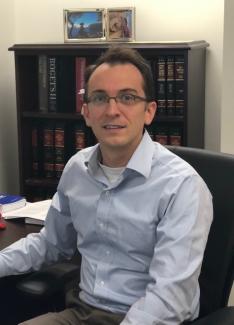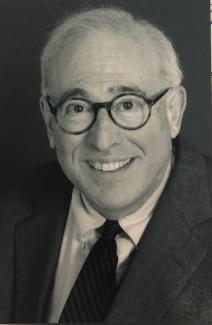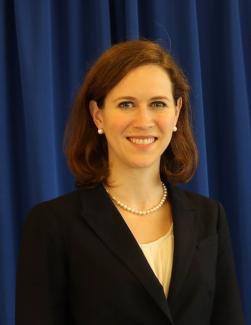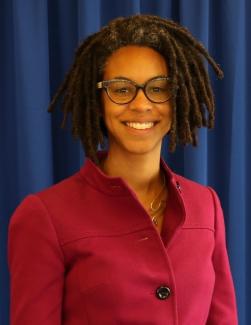Q & A with OAG Lawyers who Clerked for Supreme Court

Clerking for a Supreme Court of the United States (SCOTUS) Justice is one of the most prestigious jobs a young lawyer can hope for out of law school. Each year thousands apply for the highly-competitive role, but only 36 are chosen.
Supreme Court clerks assist in legal research, prepare the Justices for oral argument, and make recommendations to Justices on cases, among other tasks. Many SCOTUS clerks go on to become leaders in the legal field. In fact, three current Supreme Court Justices -- Chief Justice Roberts and Associate Justices Kagan and Breyer -- have clerked themselves.
The Office of the Attorney General (OAG) strives to be one of the nation’s premier public interest law firms and regularly recruits the nation’s top talent to help serve District residents. Among its exceptional team of attorneys and administrative staff, OAG counts four previous Supreme Court clerks in its ranks. These former clerks bring a wealth of experience and knowledge to help OAG better promote the public interest.
Read how these former clerks apply the skills they learned at the Supreme Court to their work at OAG.
Graham E. Phillips, Assistant Attorney General
Q: Who did you clerk for and when?
A: Chief Justice John Roberts; 2014 to 2015.
Q: What made you want to work at OAG?
A: I wanted to try handling appeals for the government. I had heard good things about the Office of the Solicitor General, and Elizabeth Wilkins and Caroline Van Zile (whom I knew from clerking) encouraged me to come.
Q: Which unique skills did you learn while being a SCOTUS clerk that you still apply today working at OAG?
A: A big part of your job as a SCOTUS clerk is reading numerous petitions from parties asking the Supreme Court to review their cases and deciding which ones the Court should consider granting. That skill of quickly sizing up new cases and assessing how serious they are is something I use here at OAG when deciding how to allocate my time.
Q: What is an interesting issue you’ve worked on since coming to OAG?
A: I got to argue an appeal about when the Zoning Commission can make decisions through semi-informal rulemaking and when it has to hold a formal, trial-type hearing. For an admin-law nerd like myself, that was quite an interesting issue.
Q: What advice do you have for students considering law school or in law school?
A: A handy piece of advice I got in law school was that if you plan to work in litigation, you should make a habit of reading every new Supreme Court decision that gets issued. It’s a great way to stay up to date, learn new areas of law, and see excellent legal writing.
Daniel Rezneck, Senior Assistant Attorney General
Q: Who did you clerk for and when?
A: Justice William J. Brennan, Jr.; 1960 to 1961.
Q: What made you want to work at OAG?
A: I was general counsel to the D.C. Control Board from 1995 to 2001, which took the District out of bankruptcy. I enjoyed working with the Corporation Counsel’s Office, as it then was, and have an abiding interest in the problems and progress of the District of Columbia.
Q: Which unique skills did you learn while being a SCOTUS clerk that you still apply today working at OAG?
A: Research and writing.
Q: What is an interesting issue you’ve worked on since coming to OAG?
A: One of my most interesting and consequential cases here at OAG was the defense of the Nationals’ baseball stadium in both the Superior and District Courts against determined efforts to prevent its construction on the present site; if successful, these suits would have made it impossible for major league baseball to return to the District of Columbia because there was no other suitable site in the District. Property owners and other plaintiffs sought to enjoin construction of the stadium on various grounds, principally that the limit on construction costs provided by the D.C. Council would be exceeded by the stadium project. I persuaded both courts to deny the injunctions, making it possible for the construction of the stadium to go ahead. So, every time I go to a game, I feel a proprietary interest and pride in the stadium.
Q: What advice do you have for students considering law school or in law school?
A: Don’t ever think more than 5 years ahead and provide for a varied career. There is too much effort by students to plan their whole future careers while still in law school. I have taught at Georgetown University Law Center for 56 years and have given this advice over and over again to students. I hope they listen.
Caroline S. Van Zile, Deputy Solicitor General
Q: Who did you clerk for and when?
A: Justice Anthony Kennedy; 2014 to 2015.
Q: What made you want to work at OAG?
A: I was born here in the District and have always wanted to give back to this city, which is such a special place. My father worked for the D.C. Attorney General’s office in the 1980s, and I loved the idea of continuing the family tradition of public service.
Q: Which unique skills did you learn while being a SCOTUS clerk that you still apply today working at OAG?
A: As a clerk, you must quickly analyze complex legal issues and help your Justice to make decisions in high-profile cases. As a supervisor at OAG, I oversee hundreds of cases every year—some of which may end up in the news—and often have to make difficult legal judgments swiftly.
Q: What is an interesting issue you’ve worked on since coming to OAG?
A: Working on the case the District and Maryland are litigating against President Trump under the Constitution’s Emoluments Clauses has been fascinating. Cases brought under those anti-corruption provisions are fairly rare, so we’ve had the opportunity to really dig into the text, history, and structure of the Constitution.
Q: What advice do you have for students considering law school or in law school?
A: Law students are often drawn to federal service, but I would urge them to look to state and local governments as well. We are so much closer to the people we serve, and I think that facilitates a unique opportunity to create meaningful change.
Elizabeth Wilkins, Senior Counsel for Policy
Q: Who did you clerk for and when?
A: Associate Justice Elena Kagan; 2014 to 2015.
Q: What made you want to work at OAG?
A: I am a D.C. native, and I’ve always wanted to give back to my hometown. At various points when I was growing up, my dad was on the school board and the board of the University of the District of Columbia, and my mom was chair of the Redevelopment Land Agency. They taught me the value and responsibility of investing in your own community. So when I was clerking and I found out that the Attorney General position was going to be popularly elected, and then that AG Racine had a vision for reform in areas like juvenile justice, consumer protection, and affordable housing, I was elated – it seemed like the perfect opportunity to help contribute to an agency that could do a lot of good for District residents. It felt like a place where I could contribute and make a difference.
Q: Which unique skills did you learn while being a SCOTUS clerk that you still apply today working at OAG?
A: Being a clerk really demands clear, succinct written analysis. Justice Kagan, in particular, is known for her cogent and accessible writing style – she writes in a way where anyone can pick up one of her opinions and understand the issues. Working for her helped me put complex legal ideas into plain language in my writing. That’s a skill that has been invaluable in my various roles as counsel to the Attorney General as I give him advice on legal and policy matters.
Q: What is an interesting issue you’ve worked on since coming to OAG?
A: I loved figuring out how to put together our Public Advocacy Division – a division dedicated to public interest litigation on behalf of District residents. When AG Racine first started, there were a few attorneys here focused on affirmative public interest litigation, and we wanted to consolidate and grow that work. Today, the Public Advocacy Division is 50 professionals strong and works on a range of consumer protection, housing, environmental, and other issues important to District residents. Plus, we’re just now building out a new Civil Rights Section. Advocating for, designing, getting authority for, and hiring for those new parts of our office is the best thing I’ve been a part of here.
Q: What advice do you have for students considering law school or in law school?
A: Remember why you are at law school or are considering law school. Many people go to law school because it seems like a decent default next step – you can get a fancy degree that seems like it will open doors. But it’s also a degree that funnels you into a certain profession, one that you may or may not end up liking. Don’t go to law school unless you have a sense of what you want to get out of it, and once you’re in law school, try not to be swayed too much by what other people think is important for you to do. Ask yourself what opportunities you should take and what opportunities you should pass on based on who you are and what you want for yourself in your career.
Learn more about how OAG works for District residents in our 2018-2019 Annual Report and Resource Guide.




